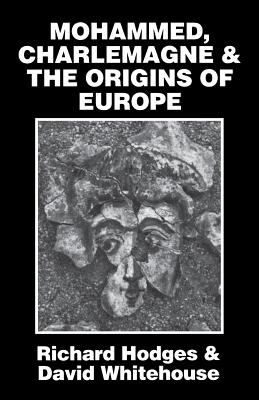Mohammed, Charlemagne, and the Origins of Europe: The Pirenne Thesis in the Light of Archaeology

Mohammed, Charlemagne, and the Origins of Europe: The Pirenne Thesis in the Light of Archaeology
The archaeology of the period A.D. 500-1000 has taken off in the Mediterranean (where prehistoric and classical studies formerly enjoyed a virtual monopoly in most areas) and in the Islamic world. Here, as in northern Europe, field survey, careful excavation and improved methods of dating are beginning to supply information which now is not only more abundant but also of much higher quality than ever before. The 'New Archaeology', pioneered in the United States in the 1960s, has taught the archaeologist the value of anthropological models in the study of the past. The new data and models positively compel us to take a new look at the written sources and reconsider the 'making of the Middle Ages'.
Mohammed, Charlemagne, and the Origins of Europe attempts to prove the point. Henri Pirenne's classic history of Europe between the fifth and ninth centuries, Mohammed and Charlemagne, although published on the eve of the Second World War, remains an important work. Many parts of its bold framework have been attacked, but seldom decisively, for until now the evidence has been insufficient. In their concise book, Richard Hodges and David Whitehouse review the 'Pirenne thesis' in the light of archaeological information from northern Europe, the Mediterranean and western Asia.
In doing so, they have two objectives: to tackle the major issue of the origins of the Carolingian Empire and to indicate the almost staggering potential of the archaeological data. This book, then, is an attempt to rekindle interest in an important set of questions and to draw attention to new sets of data--and to persuade readers to look across traditional boundaries between classical and medieval, east and west, history and archaeology.
PRP: 152.83 Lei
Acesta este Pretul Recomandat de Producator. Pretul de vanzare al produsului este afisat mai jos.
137.55Lei
137.55Lei
152.83 LeiIndisponibil
Descrierea produsului
The archaeology of the period A.D. 500-1000 has taken off in the Mediterranean (where prehistoric and classical studies formerly enjoyed a virtual monopoly in most areas) and in the Islamic world. Here, as in northern Europe, field survey, careful excavation and improved methods of dating are beginning to supply information which now is not only more abundant but also of much higher quality than ever before. The 'New Archaeology', pioneered in the United States in the 1960s, has taught the archaeologist the value of anthropological models in the study of the past. The new data and models positively compel us to take a new look at the written sources and reconsider the 'making of the Middle Ages'.
Mohammed, Charlemagne, and the Origins of Europe attempts to prove the point. Henri Pirenne's classic history of Europe between the fifth and ninth centuries, Mohammed and Charlemagne, although published on the eve of the Second World War, remains an important work. Many parts of its bold framework have been attacked, but seldom decisively, for until now the evidence has been insufficient. In their concise book, Richard Hodges and David Whitehouse review the 'Pirenne thesis' in the light of archaeological information from northern Europe, the Mediterranean and western Asia.
In doing so, they have two objectives: to tackle the major issue of the origins of the Carolingian Empire and to indicate the almost staggering potential of the archaeological data. This book, then, is an attempt to rekindle interest in an important set of questions and to draw attention to new sets of data--and to persuade readers to look across traditional boundaries between classical and medieval, east and west, history and archaeology.
Detaliile produsului








